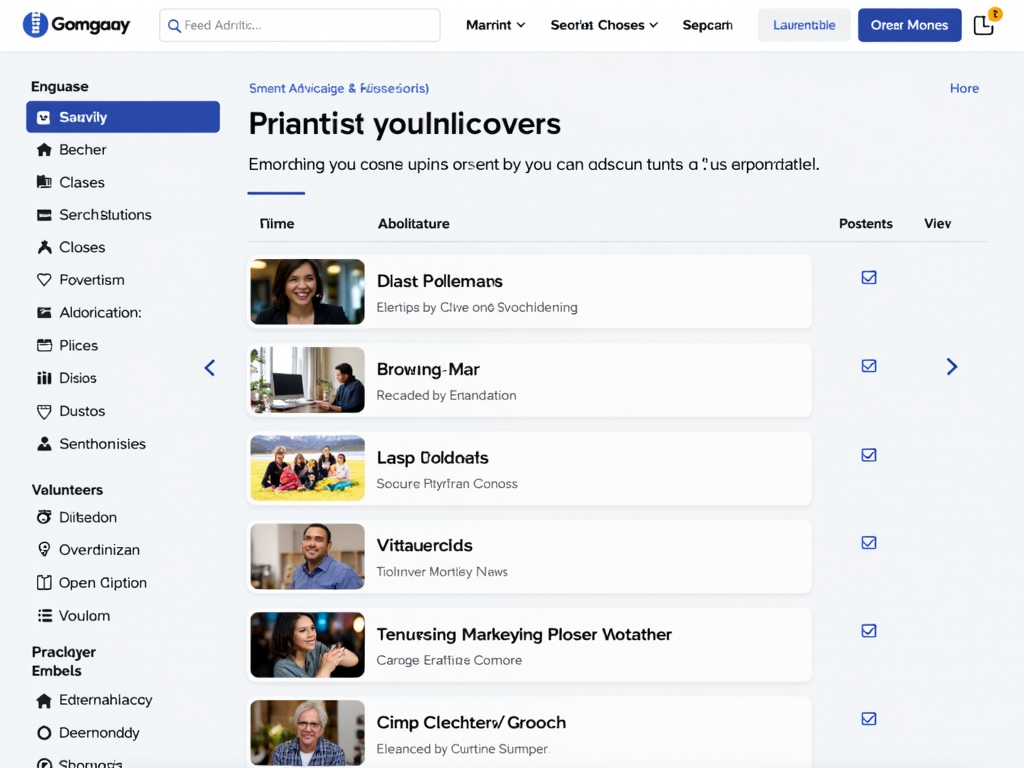The Benefits of Advocacy Work and How to Get Started
By , May 1, 2025
Advocacy work is a powerful way to make a difference in the world. It allows individuals to stand up for what they believe in and effect change. This article explores the benefits of advocacy work and provides a step-by-step guide on how to get started.
Personal Growth
Engaging in advocacy work can lead to significant personal development. Volunteers often find themselves developing new skills such as public speaking, research, and networking. These skills are not only valuable in advocacy but also in various aspects of life. Moreover, advocacy work can boost confidence and provide a sense of purpose. Knowing that you are contributing to a cause greater than yourself can be incredibly fulfilling.
In addition to skill development, advocacy work can have a positive impact on mental health. Engaging in meaningful activities and contributing to a cause can provide a sense of purpose and belonging. This can be particularly beneficial for individuals struggling with feelings of isolation or lack of direction. According to a study by Harvard University, volunteers report higher levels of life satisfaction and lower rates of depression.

Community Impact
One of the most significant benefits of advocacy work is the potential to bring about positive change in communities. Advocates can influence policy decisions, raise awareness about important issues, and mobilize resources to address pressing problems. For example, advocacy efforts have led to significant changes in areas such as environmental protection, human rights, and public health.
The impact of advocacy work on communities can be profound. Take, for example, the civil rights movement in the United States. Through tireless advocacy, activists were able to bring about significant changes in laws and societal attitudes. Similarly, environmental advocacy has led to the protection of natural resources and the implementation of sustainable practices.
On a smaller scale, local advocacy efforts can also make a big difference. In my own community, a group of volunteers successfully campaigned for the installation of pedestrian crossings near schools, making the area safer for children.

Networking Opportunities
Advocacy work often involves collaborating with like-minded individuals and organizations. This can lead to valuable connections and opportunities for future collaborations. Networking in the advocacy space can open doors to new projects, partnerships, and even career opportunities.
Advocacy work can also provide opportunities for international collaboration. Through online platforms and global networks, advocates can connect with peers from different countries and cultures. This can lead to a richer understanding of global issues and innovative solutions. For example, I once participated in a virtual summit where advocates from various continents shared strategies for combating climate change.

Career Advancement
For those interested in pursuing a career in advocacy or related fields, volunteering can provide invaluable experience. It demonstrates commitment and passion to potential employers and can set you apart in a competitive job market. Many advocacy professionals started their careers as volunteers and worked their way up.
When applying for jobs, highlighting your advocacy experience can set you apart. In your resume, include specific examples of your contributions and the impact you made. During interviews, share stories about challenges you faced and how you overcame them. This demonstrates your problem-solving skills and commitment to the cause.

How to Get Started
If you're interested in advocacy work, here are some steps to help you get started:
-
Identify a Cause: Think about issues that you are passionate about. What problems do you want to solve? What changes do you want to see in the world?
-
Research Organizations: Look for organizations that align with your chosen cause. Many organizations offer volunteer opportunities, both in-person and online.
-
Volunteer: Start small and gradually take on more responsibilities as you gain experience. Volunteering can be a great way to learn about the advocacy process and develop your skills.
-
Build Skills: Take advantage of training and development opportunities offered by organizations. This can help you become a more effective advocate.
-
Measure Your Impact: Keep track of your contributions and the outcomes of your advocacy efforts. This can help you stay motivated and demonstrate your impact to potential employers or funders.
To further assist you, here are some online resources and tools:
-
Advocacy Training Courses: Platforms like Coursera and edX offer free courses on advocacy and social change.
-
Volunteer Matching Websites: Use sites like VolunteerMatch to find opportunities that match your interests.
-
Social Media Groups: Join Facebook groups or LinkedIn communities focused on advocacy to connect with like-minded individuals.

Advocacy work is a rewarding way to make a difference. It offers personal growth, community impact, networking opportunities, and career advancement. By following the steps outlined in this article, you can start your journey as an advocate and contribute to positive change.